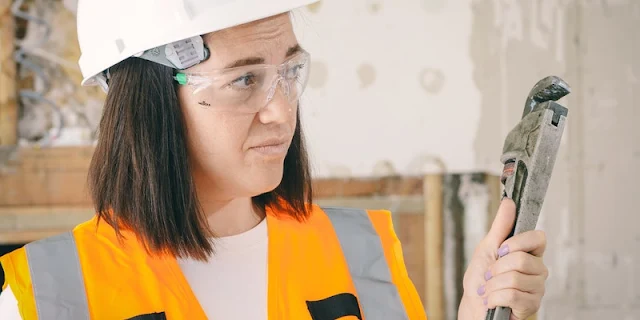One of the most important parts of the plumbing in your home is the septic system. Properly taking care of your septic system is imperative so that it works well, and you do not deal with raw sewage backing up into your house. There are many things that you need to do to ensure that your septic tank is properly maintained.
Routine
Pumping and Inspection
You should
have your septic tank pumped every three to five years. More often if you have
more people living in your home. Generally speaking, you should pay around
$200-$600, and this will vary depending on the size of your septic tank. While
the septic tank is being pumped, an inspection should take place. This
inspection will include looking for leaks and looking at the sludge levels in
your tank. If any repairs are needed, make sure that you get those done as soon
as possible. For example, if something goes wrong with your backflow preventer,
they will be able to get backflow preventer repair parts out quickly
and have your backflow preventer up and running.
Don’t
Do All Your Washing In One Day
One of the
worst things that you can do to your septic tank is to use your washing machine
and dishwasher every single day. Some people pick one day a week where they do
all their clothes washing. This puts stress on the septic system because it has
to process several loads of wastewater. Instead of washing your clothes or
running your dishwasher once a week, consider running it at least a couple of
times a week. Also, you will want to ensure that you are doing a full load each
time you run the dishwasher or washing machine to help conserve water.
Don’t
Flush Everything Down the Toilet
The only thing that should be flushed down the toilet is bodily waste and toilet paper. No dental floss, feminine products, diapers, and more should be flushed down it as this can cause a severe problem. Toilet paper will break down in the septic tank, but those other items will not. It is also important that you find toilet paper that is 100 percent septic safe. Some toilet papers out there are not septic tank friendly and will eventually lead to your toilet clogging or your septic tank becoming full.
Don’t
Put Everything Down the Sink Drain
Many things can cause a septic tank to fail, and what you put down your
kitchen sink matters. Coffee grounds, grease, flour, medication, and more can
clog pipes and cause damage to your septic tank. Do not put food products like
dairy down the drain because it has a hard time breaking down in the septic
tank. If you have a garbage disposal, it is important to ensure that you are
only disposing of biodegradable food when you use it. It is a great idea to put
sink strainers on each one of your drains to ensure that you do not put
something down the drain that should not be.
Cleaning
Chemicals
Cleaning
chemicals can cause the good bacteria in your septic system to die. Do not use
bleach when washing clothes, and if you have to, only use a very small amount.
It is also a good idea to stay away from chemical drain cleaners. Drain
cleaners will not only kill the good bacteria in the tank, but they will also
damage your tank and the pipes. If you have a clog, use a drain snake, or call
out a plumber to fix the problem. Another chemical cleaner you should avoid is
large amounts of ammonia as it can cause issues too.
Drain
Field Maintenance
You should find out where your drain field is and closely monitor it. You do not want to park vehicles or drive over your drain field. Never plant trees or shrubs near your drain field, as roots will grow into your pipes, causing a massive amount of damage and potential backups into your home.
Taking care of your septic tank will help you to avoid any issues with wastewater backing up into your home or yard. If you properly maintain your septic tank, it should last for many years, and you will not have to worry about replacing it. Remember to get it pumped and inspected regularly, and be careful what you put down your drains.









0 Comments